
i am not god
Series: The Ego Papers
Series: The Ego Papers

Series: The Ego Papers
![]()

![]()
 Since Abraham, about 4000 year ago, the Jewish people have represented to the world that there is but one true God. The early Christians were also strict monotheists, though the discovery that God was Three Persons in One took some adjusting to by the early church. The Roman Emperor Constantine declared Christianity to be the official state religion about 314 AD, complicating history forever. The numerous gods of Greece and Rome were now demoted and suppressed but the new state church badly misrepresented the one true God as He is revealed to us in the Old and New Testaments.
Since Abraham, about 4000 year ago, the Jewish people have represented to the world that there is but one true God. The early Christians were also strict monotheists, though the discovery that God was Three Persons in One took some adjusting to by the early church. The Roman Emperor Constantine declared Christianity to be the official state religion about 314 AD, complicating history forever. The numerous gods of Greece and Rome were now demoted and suppressed but the new state church badly misrepresented the one true God as He is revealed to us in the Old and New Testaments.
The default religion of mankind has been polytheism since the beginning. Polytheism is the worship of or belief in multiple deities, which are usually assembled into a pantheon of gods and goddesses, along with their own religions and rituals. In most religions which accept polytheism, the different gods and goddesses are representations of forces of nature or ancestral principles, and can be viewed either as autonomous or as aspects or emanations of a creator deity or transcendental absolute principle (monistic theologies), which manifests immanently in nature (panentheistic and pantheistic theologies).
Polytheism is a type of theism. Within theism, it contrasts with monotheism, the belief in a singular God, in most cases transcendent. Polytheists do not always worship all the gods equally, but they can be henotheists, specializing in the worship of one particular deity. Other polytheists can be kathenotheists, worshiping different deities at different times.
Polytheism was the typical form of religion during the Bronze Age and Iron Age up to the Axial Age and the development of Abrahamic religions, the latter of which enforced strict monotheism. It is well documented in historical religions of Classical antiquity, especially ancient Greek religion and ancient Roman religion, and after the decline of Greco-Roman polytheism in tribal religions such as Germanic, Slavic and Baltic paganism.
Notable polytheistic religions practiced today include Taoism, Shenism or Chinese folk religion, Japanese Shinto, Santería, most Traditional African religions [2] and various neopagan faiths.
Hinduism cannot be exclusively categorized as either monotheistic or polytheistic, as some Hindus consider themselves to be monotheists and others consider themselves to be polytheists. Both are compatible with Hindu texts, and the right way of practicing Hinduism is subject to continued debate, with many Hindu schools regarding it as a henotheistic religion. The Vedanta school of Hinduism practices a firmly monotheistic version of the religion, holding that Brahman is the cause of everything and the universe itself is the manifestation of Brahman. The deities of polytheism are often portrayed as complex personages of greater or lesser status, with individual skills, needs, desires and histories; in many ways similar to humans (anthropomorphic) in their personality traits, but with additional individual powers, abilities, knowledge or perceptions. Polytheism cannot be cleanly separated from the animist beliefs prevalent in most folk religions. The gods of polytheism are in many cases the highest order of a continuum of supernatural beings or spirits, which may include ancestors, demons, wights and others. In some cases these spirits are divided into celestial or chthonicclasses, and belief in the existence of all these beings does not imply that all are worshipped...Some well-known historical polytheistic pantheons include the Sumerian gods and the Egyptian gods, and the classical-attested pantheon which includes the ancient Greek religion and Roman religion. Post-classical polytheistic religions include Norse Æsir and Vanir, the Yoruba Orisha, the Aztec gods, and many others. Today, most historical polytheistic religions are referred to as "mythology", [7] though the stories cultures tell about their gods should be distinguished from their worship or religious practice. For instance deities portrayed in conflict in mythology would still be worshiped sometimes in the same temple side by side, illustrating the distinction in the devotees mind between the myth and the reality. Scholars such as Jaan Puhvel, J. P. Mallory, and Douglas Q. Adams have reconstructed aspects of the ancient Proto-Indo-European religion, from which the religions of the various Indo-European peoples derive, and that this religion was an essentially naturalist numenistic religion. An example of a religious notion from this shared past is the concept of *dyēus, which is attested in several distinct religious systems.
In many civilizations, pantheons tended to grow over time. Deities first worshipped as the patrons of cities or places came to be collected together as empires extended over larger territories. Conquests could lead to the subordination of the elder culture's pantheon to a newer one, as in the Greek Titanomachia, and possibly also the case of the Æsir and Vanir in the Norse mythos. Cultural exchange could lead to "the same" deity being renowned in two places under different names, as seen with the Greeks, Etruscans, and Romans, and also to the cultural transmission of elements of an extraneous religion into a local cult, as with worship of the ancient Egyptian deity Osiris, which was later followed in ancient Greece.
Most ancient belief systems held that gods influenced human lives. However, the Greek philosopher Epicurus held that the gods were living, incorruptible, blissful beings who did not trouble themselves with the affairs of mortals, but who could be perceived by the mind, especially during sleep. Epicurus believed that these gods were material, human-like, and that they inhabited the empty spaces between worlds.
Hellenistic religion may still be regarded as polytheistic, but with strong monistic components, and monotheism finally emerges from Hellenistic traditions in Late Antiquity in the form of Neoplatonism and Christian theology. (Wikipedia)
In an important talk June 2018 Tim Keller speaking at the Howard Hendricks Center of Dallas Theological Seminary. talked of a disconnect in our nation between the older generation and "Millennials." See: Today’s American Christian Divide and The Great Generational Disconnect.

Tim Keller sees Old Paradigm Churches imported from Europe as fading from being relevant in America now, so that we are becoming spiritually dead like Europe. Younger people in droves, reacting to the hypocrisy of the older generation, have been dropping out of the Establishment. Keller noted that those who are living in the Old Paradigm believe in a "two story" universe but Millennials live in a "one story" universe. The upper story is where God, the angels, and heaven are to be found. But the lower story is thought to be the domain of man and the church. A person seeking God should become part of the church community downstairs, and reach up to invite God to change him or her. Once converted, the supplicant only needs to conform to the lower story culture and supposedly live happily ever after. Whether or not Jesus actually is allowed to change the inner person, thought, emotions, motives is unimportant it is wrongly assumed, much of the time.
Actually, Intimacy with God is a very big deal.
Under the rules of the new paradigm there is only one story to the universe, the upper story is assumed by many to be empty. Therefore in the new paradigm, one hears, "I am God," "you are God" "we are all gods." This is all Eastern Pantheism. But Keller rightly said that a "two-story" universe is more true to absolute reality. Anyone who knows the real Jesus and who has read the Bible knows the Upper Story is vast and packed full of life. Those who are walking with resurrected Lord Jesus, earth's coming King, are safe, the rest are not.
At risk are Compromised Christians, Cultural Christians, Closeted Christians, Carnal Christians, Lapsed Christians, the Rebellious Ones, and of course Atheists, Agnostics and the like, as always. A small group of die-hard sinners, is excluded.
America was no AccidentThe change is only now becoming apparent to those who have worn blinders for decades. The “culture war” was lost a generation ago, because in the generation before that we Americans (by-and-large) settled for a comfortable and domesticated Gospel that panders to our own desires and promotes our own ends.
 "But Jeshurun grew fat and kicked; You grew fat, you grew thick, You are obese! Then he forsook God who made him, And scornfully esteemed the Rock of his salvation. |
What is happening now in history is that the real God is invading from upstairs. Jesus Christ is the unifying factor in breaking down the wall between all paradigms. Those who know Him are a protected species.
Younger people today often no longer follow the teachings of the church their forefathers belonged to. These churches are considered dead orthodoxy by many of them. The culture of America has been Christianized because of the influence of generations of true Christians embedded in an otherwise secular culture. But thinks have changed! There has never been a Christian nation in the world. The Bible speaks only of Israel and the Gentile powers. Only Israel has a covenant with God.
"Christians" attending most churches apparently adapt their behavior to what they see as prevailing standards. A vital daily walk with Jesus, obeying Him and not being conformed to the culture are rare. We think of our selves as responsible citizens calling on the impersonal God "who lives upstairs." The real New Testament imagery of our being Ambassadors to earth from another realm is illusive. When we die, we assume we’ll get to go to a remote heaven up there and be rewarded for our good deeds.
Many people who seem themselves as Old Paradigm “Christians” may not yet know Jesus personally. They are often trying to live good lives, but actually walking in the flesh, compromised by being still embedded in the evil world system. As noted, those living in the old paradigm tend to think of God and the angels as residing in the upper story of a two-story universe.
The disconnect has been profound. Loss of moral absolutes has followed: "I reject, insofar as possible, all superimposed moral values." There is also affinity for Eastern mysticism. Mind Altering drugs are common. A low view of marriage prevails. One find lots of Hooking Up for casual sex, MF, MM, FF, etc. Pragmatic decision-making prevails because of the loss of moral absolutes and a paucity of well grounded, trustworthy, visionary leaders.
“My parent’s values don’t apply to me. In many ways they were hypocritical and judgmental. I believe in tolerance for every one."
:Other religions are just as good as my parents’ Christianity.”
“I have never studied history seriously. I take one day at a time and I trust in Lady Luck.”
“My will is king. I do whatever seems right to me and I respect your right to do what seems right to you.”
“Bad things happen to good people and I am basically a good person. I have not read the Bible.”
“SELF is my god. Since I know that your god is also SELF, we must all respect the boundaries of everyone.”
"I reject a two storied universe (the old paradigm). If there is an upper story, it’s empty."
“My day to day life is existential. I must survive one day at a time. The future is totally unknown and unknowable.""If there is a heaven (which I doubt) I expect to go there when I die, because I’m basically a good person.”
“I am in a relationship with my GF or BF but we don’t plan to get married. Of course we have sex together but we also hook up with other people.Why get married at all? Everyone knows that sexual desires are part of life.
"Abstinence is impossible anyhow. "
"I accept other people who are wired differently than I am. They have a right to happiness just like me.”
“I am terrified of death and the hereafter.”
“I believe everyone deserves to be loved."
“I was raised in the church and my parents are very religious. But I am on a different quest in life.”
The point of all this is that most younger persons in America (under the age of about 40?) are now polytheists without knowing it.
"I am my own god but I acknowledge that you have your own god as well." "Since we have to get along with one another to survive, I choose to accept your right to your own god to not judge you." "There are no longer any absolutes in life."
The "gods" worshipped and served in the new paradigm are often undefined! The may be like the gods of the Hindu pantheism or nature gods, or they might be, for some, the gods of science. Prominent in our culture behind the scenes are the old Canaanite gods Baal, Asherath, Molech. (The whole subject falls under the category of Idolatry.)
Tim Keller points out that the Old Paradigm of a two-story universe is the correct view. At this time in history, the upper story is at last breaking into the lower. The Bible has always presented the true truth, therefore professing followers of Jesus must live what we claim to believe. No wonder lots of people are stressed to the max lately!

Ho! Everyone who thirsts,
Come to the waters;
And you who have no money,
Come, buy and eat.
Yes, come, buy wine and milk
Without money and without price.
Why do you spend money for what is not bread,
And your wages for what does not satisfy?
Listen carefully to Me, and eat what is good,
And let your soul delight itself in abundance.
Incline your ear, and come to Me.
Hear, and your soul shall live;
And I will make an everlasting covenant with you—
The sure mercies of David.
Indeed I have given him as a witness to the people,
A leader and commander for the people.
Surely you shall call a nation you do not know,
And nations who do not know you shall run to you,
Because of the Lord your God,
And the Holy One of Israel;
For He has glorified you.”
Seek the Lord while He may be found,
Call upon Him while He is near.
Let the wicked forsake his way,
And the unrighteous man his thoughts;
Let him return to the Lord,
And He will have mercy on him;
And to our God,
For He will abundantly pardon.
“For My thoughts are not your thoughts,
Nor are your ways My ways,” says the Lord.
“For as the heavens are higher than the earth,
So are My ways higher than your ways,
And My thoughts than your thoughts.
“For as the rain comes down, and the snow from heaven,
And do not return there,
But water the earth,
And make it bring forth and bud,
That it may give seed to the sower
And bread to the eater,
So shall My word be that goes forth from My mouth;
It shall not return to Me void,
But it shall accomplish what I please,
And it shall prosper in the thing for which I sent it.
“For you shall go out with joy,
And be led out with peace;
The mountains and the hills
Shall break forth into singing before you,
And all the trees of the field shall clap their hands.
Instead of the thorn shall come up the cypress tree,
And instead of the brier shall come up the myrtle tree;
And it shall be to the Lord for a name,
For an everlasting sign that shall not be cut off.”
1 Praise the LORD!
Praise the name of the LORD;
Praise Him, O you servants of the LORD!
2 You who stand in the house of the LORD,
In the courts of the house of our God,
3 Praise the LORD, for the LORD is good;
Sing praises to His name, for it is pleasant.
4 For the LORD has chosen Jacob for Himself,
Israel for His special treasure.
5 For I know that the LORD is great,
And our Lord is above all gods.
6 Whatever the LORD pleases He does,
In heaven and in earth,
In the seas and in all deep places.
7 He causes the vapors to ascend from the ends of the earth;
He makes lightning for the rain;
He brings the wind out of His treasuries.
8 He destroyed the firstborn of Egypt,
Both of man and beast.
9 He sent signs and wonders into the midst of you, O Egypt,
Upon Pharaoh and all his servants.
10 He defeated many nations
And slew mighty kings--
11 Sihon king of the Amorites,
Og king of Bashan,
And all the kingdoms of Canaan--
12 And gave their land as a heritage,
A heritage to Israel His people.
13 Your name, O LORD, endures forever,
Your fame, O LORD, throughout all generations.
14 For the LORD will judge His people,
And He will have compassion on His servants.
15 The idols of the nations are silver and gold,
The work of men’s hands.
16 They have mouths, but they do not speak;
Eyes they have, but they do not see;
17 They have ears, but they do not hear;
Nor is there any breath in their mouths.
18 Those who make them are like them;
So is everyone who trusts in them.
19 Bless the LORD, O house of Israel!
Bless the LORD, O house of Aaron!
20 Bless the LORD, O house of Levi!
You who fear the LORD, bless the LORD!
21 Blessed be the LORD out of Zion,
Who dwells in Jerusalem!
Praise the LORD!
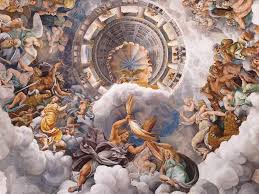
![]()

I am utterly amazed at today’s wide indifference to Jesus and our sense of entitlement. Is Jesus our errand boy, our genie in a bottle when we need our errands run?
In paying tribute to his cousin John the Baptist, our Lord called attention to the reality that we ignore God most of the time, no matter the life style of His messenger. But John and Jesus were very different reps of the one true God.
Though men are not real gods and can not become "God" the Apostle Peter says something amazing in this regard. Peter writes,
"God's divine power has granted to us all things that pertain to life and godliness, through the knowledge of him who called us to his own glory and excellence, by which he has granted to us his precious and very great promises, that through these you may escape from the corruption that is in the world because of passion, and become partakers of the divine nature." (2 Peter 1:3-4)
The New Testament shows in clear terms that normal humanity was designed to be indwelt by God. We human are incomplete without a relationship with a personal God. This is how God decided to create us! Granting men free will and allowing to know their Creator by means of personal relationships (one at a time) now opens marvelous possibilities for life and liberty among men. "You are complete in Christ who is the head of all rule and authority," Paul writes in Colossians.
God uses mostly masculine pronouns when speaking to us in Biblical revelation. But believers understand right away that the Biblical God is not a sexual bring--as the heathen gods usually are. The image of God in man can not be expressed by a male alone, but must be imaged to us by male and female together.
"Then God [Elohim] said, "Let us make man in our image, after our likeness; and let them have dominion over the fish of the sea, and over the birds of the air, and over the cattle, and over all the earth, and over every creeping thing that creeps upon the earth." So God created man in his own image, in the image of God he created him; male and female he created them. And God blessed them, and God said to them, "Be fruitful and multiply, and fill the earth and subdue it; and have dominion over the fish of the sea and over the birds of the air and over every living thing that moves upon the earth." (Genesis 1:26-28)
That is, the God of the Bible is as much "feminine" as He is "masculine"-- we must use these terms carefully when talking about the nature of God. God is not a sexual Being. He is Three Persons, not two. Men and women are identical in spirit but different in soul and in body. The interactions of the two sexes are not the interactions of two identical clones with one another, but relationships of unique persons who are designed to balance and complement one another. (See Made in the Image of God). Furthermore, no two human beings are identical. Each one of us is a unique creation--a work of exquisite art. Therefore the personal relationship each of us has with God is one-of-a-kind. Every friendship, every marriage, every relationship we have with another person, is also unique. God likes variety in His all creative handiwork--He did not make us a bunch of clones and we are far, far from being puppets, zombies, or robots.
When we think of interpersonal relationships of any kind it is immediately evident that we are all constantly involved in both initiating and responding, giving and receiving. One can not have the one without the other. There also exists in life a response to match a stimulus, a responder to answer to the initiator. God Himself is also a "community of three persons." Therefore the true God is also the God of community. The importance of community is very important. God Himself is a member of the community. This is also part of His design for mankind. God participates fully in all aspects of His creation.
If God being a member of the community was not a very evident fact of life before the birth of Jesus, it is certainly clear from the New Testament that in taking on the form of a man, the Son of God, the second Person of the Trinity, has indeed joined Himself to our humanity. God's purpose in doing this is not only to accomplish our salvation from sin but to enable us to live together in community with Him forever more. God meets us through the man Jesus Christ as our Mediator, our Great High Priest, our Counselor, our Lover, our Friend. For instance, there are two Adams in the Bible: the first Adam, from whom we have all descended--and Jesus the Last Adam who heads a whole new race of humans. Christians can think of Jesus as their Elder Brother--among His many other attributes.
"Have this mind among yourselves, which is yours in Christ Jesus, who, though he was in the form of God, did not count equality with God a thing to be grasped, but emptied himself, taking the form of a servant, being born in the likeness of men. And being found in human form he humbled himself and became obedient unto death, even death on a cross. Therefore God has highly exalted him and bestowed on him the name which is above every name, that at the name of Jesus every knee should bow, in heaven and on earth and under the earth, and every tongue confess that Jesus Christ is Lord, to the glory of God the Father." (Philippians 2:5-11)
About this "family" the Bible has much to say! Once one begins to speak of a personal God who wants to know people personally and once we learn that this God has chosen to meet us through a fellow human being of our own race, Christian faith moves quickly and radically apart from all other religions. [Because of the Fall--man's rebellion against God--one becomes a true member of God's family by spiritual rebirth--but this does not release non-Christians from ultimate accountability to God as Creator, Lord and Judge of all.
Jesus calls us to rest: to cease trying harder and to rest in the sufficiency of an indwelling Lord. He alone has real life and offers it abundantly if only we give Him permission.
“When Jesus Christ comes into your life, he doesn't come to destroy your personality. He does destroy your ego, and it's good for it to go-that independent self that seeks always to be the center of the stage. He will wage relentless, unending war against that, and the weapon he uses is the cross, those hardships and trials and humiliating experiences which he brings you through that brings that ego to an end. It puts it where God put it-on the cross, in the place of death. He does not destroy the essential man; he indwells it, he enhances it, he glorifies it. The result is true manhood, true womanhood,attractive and beautiful and easy to live with. Man as God intended man to be becomes manifest in the world. That is incarnation!“ (Ray Stedman)
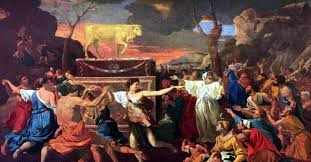
And God spoke all these words, saying: 2 “I am the LORD your God, who brought you out of the land of Egypt, out of the house of bondage. 3 “You shall have no other gods before Me. 4 “You shall not make for yourself a carved image--any likeness of anything that is in heaven above, or that is in the earth beneath, or that is in the water under the earth; 5 you shall not bow down to them nor serve them. For I, the LORD your God, am a jealous God, visiting the iniquity of the fathers upon the children to the third and fourth generations of those who hate Me, 6 but showing mercy to thousands, to those who love Me and keep My commandments. 7 “You shall not take the name of the LORD your God in vain, for the LORD will not hold him guiltless who takes His name in vain. 8 “Remember the Sabbath day, to keep it holy. 9 Six days you shall labor and do all your work, 10 but the seventh day is the Sabbath of the LORD your God. In it you shall do no work: you, nor your son, nor your daughter, nor your male servant, nor your female servant, nor your cattle, nor your stranger who is within your gates. 11 For in six days the LORD made the heavens and the earth, the sea, and all that is in them, and rested the seventh day. Therefore the LORD blessed the Sabbath day and hallowed it. 12 “Honor your father and your mother, that your days may be long upon the land which the Lord your God is giving you. 13 “You shall not murder. 14 “You shall not commit adultery. 15 “You shall not steal. 16 “You shall not bear false witness against your neighbor. 17 “You shall not covet your neighbor’s house; you shall not covet your neighbor’s wife, nor his male servant, nor his female servant, nor his ox, nor his donkey, nor anything that is your neighbor’s.” 18 Now all the people witnessed the thunderings, the lightning flashes, the sound of the trumpet, and the mountain smoking; and when the people saw it, they trembled and stood afar off. 19 Then they said to Moses, “You speak with us, and we will hear; but let not God speak with us, lest we die.” 20 And Moses said to the people, “Do not fear; for God has come to test you, and that His fear may be before you, so that you may not sin.” 21 So the people stood afar off, but Moses drew near the thick darkness where God was. 22 Then the LORD said to Moses, “Thus you shall say to the children of Israel: ‘You have seen that I have talked with you from heaven. 23 ‘You shall not make anything to be with Me--gods of silver or gods of gold you shall not make for yourselves.” (Exodus 30:1-30)

1 Oh, sing to the LORD a new song!
Sing to the LORD, all the earth.
2 Sing to the LORD, bless His name;
Proclaim the good news of His salvation from day to day.
3 Declare His glory among the nations,
His wonders among all peoples.
4 For the LORD is great and greatly to be praised;
He is to be feared above all gods.
5 For all the gods of the peoples are idols,
But the LORD made the heavens.
6 Honor and majesty are before Him;
Strength and beauty are in His sanctuary.
7 Give to the LORD, O families of the peoples,
Give to the LORD glory and strength.
8 Give to the LORD the glory due His name;
Bring an offering, and come into His courts.
9 Oh, worship the LORD in the beauty of holiness!
Tremble before Him, all the earth.
10 Say among the nations,
“The LORD reigns;
The world also is firmly established,
It shall not be moved;
He shall judge the peoples righteously.”
11 Let the heavens rejoice, and let the earth be glad;
Let the sea roar, and all its fullness;
12 Let the field be joyful, and all that is in it.
Then all the trees of the woods will rejoice before the LORD.
13 For He is coming, for He is coming to judge the earth.
He shall judge the world with righteousness,
And the peoples with His truth.
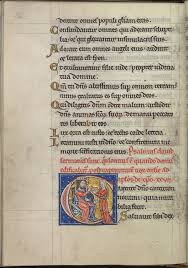
Ray Stedman had astute insights into idolatry today. very relevant today. For example, his message Athens and Paul is very relevant today.
At the time of Paul's visit to Athens, that city was no longer important as a political seat; Corinth was the commercial and political center of Greece under the Roman Caesars. But Athens was still the university center of the world. It was the heir of the great philosophers, the city of Pericles and Demosthenes, of Socrates, Plato, Aristotle, Sophocles, and Euripides -- these men who established patterns of thought that have affected human learning for centuries. Almost all philosophies follow, in some degree, the teachings of these men. But Athens was long past its zenith when Paul visited it. It was now four hundred years after the golden age of Greece, and, though Athens was still a center of art, beauty, culture, and knowledge, the city had lost all political importance.
Remember that Paul came down from Berea with certain unnamed Christians and was left alone in Athens. He sent word back to Silas and Timothy, whom he had left in Berea, to join him there. Evidently the apostle did not intend to stay long in Athens. He was heading for Corinth, the political capital, for Paul always focused upon those areas where the commerce of life flowed and where the influence of a church would rapidly reach out into the surrounding regions. He had decided to wait for Silas and Timothy in Athens, and Luke now tells us what happened there, as doubtless it was later told to him by Paul himself:
Now while Paul was waiting for them at Athens, his spirit was provoked within him as he saw that the city was full of idols. So he argued in the synagogue with the Jews and the devout persons, and in the market place every day with those who chanced to be there. Some also of the Epicurean and Stoic philosophers met him. (Acts 17:16-18a RSV)
This section is a powerful revelation of why the gospel needs to be presented to every culture and every age of the world. While Paul was waiting at Athens, he did what any tourist does in Athens: He went sightseeing. If you have been in Athens, you know what a striking city this is. There are the great temples of the Acropolis, crowned by the Parthenon -- now in a ruined state but nevertheless still one of the most beautiful buildings in all the world. There are many other theaters, temples, and marketplaces of ancient Athens which can still be seen.
As the apostle walked around the city he saw the gods of Athens, the idols that were being worshiped. One of the ancient writers tells us that at this time there were 30,000 gods in Athens! Many of these statues have survived and you will find copies of them everywhere as samples of ancient art. Paul recognized that these were not merely objects of art, but were actually gods being worshiped by the people of Athens. Peterronius, one of the ancient historians, said that is was easier to find a god in Athens than a man! With 30,000 of them, you can see why this would be true.
Luke tells us that Paul's spirit was moved when he saw this. He was provoked. The Greek word is the word from which we get out word paroxysm. Paul felt an intense paroxysm of the spirit, a storm within, as he saw the city given over to idolatry. Each idol revealed that these men and women of Athens had a great capacity for God. They knew there was something beyond man, and they were seeking for it. But each idol also revealed a twisting, a distorting, of that capacity, a sabotaging of it. So, as the apostle went around the city, his spirit was greatly troubled to see men and women blasted by this prostitution of their human powers through the worship of false gods.
What Paul felt was very much akin to what must have moved a group of Christian students recently when they ran an ad in the Stanford Daily. I have quoted parts of this before, but I would like to read one paragraph again because it seems to me to capture the exact sense of what gripped the apostle's heart in Athens:
Why are we Christians willing to follow Jesus into suffering in order to accomplish his mission of liberation? Because Jesus has changed our minds about a lot of things, and we can no longer tolerate the foolishness and futility that is passed out as wisdom at this university. We are tired of the "enlightenment" of this age which is blindly ignorant of its intellectual slavery to materialism and its contradictory obligation to ethical relativism. We are tired of seeing people's lives wasted and unfulfilled because of their submission to the established world order.
That expresses exactly what the apostle felt as he moved about the city, and saw the cloud of idolatry that hung over this city, blotting out the truth and light, and plunging these people into the darkness of superstition. So he began to preach. He could not help it. He knew that the only message that could help people in this state was the delivering word of Jesus. There were three groups to whom he spoke:
First he went into the synagogue, as his custom was, and there spoke to the religious people, the Jews and devout persons who were there. These Jews (and the Greeks who were following Judaism) were opposed to the idolatry of the city, but could do nothing to prevent it. There was nothing they said that could help the city. They themselves were delivered from idolatry, but they were powerless to deliver the city because they were focusing on their own religious experience. To these religious persons, Paul preached the gospel with seemingly little effect.
Then there were the common citizens of the city whom he met in the marketplace, the agora of ancient Greece -- tradesmen, people going about their business, commercial people coming in with their wares to the city square. There he met them and talked with them. Here were people who were unthinking victims of the idolatry that held the city in its grip. They were sunken in superstition, gripped by fear, uncertainty, dread of darkness, and inner tensions and turmoil. These are always the results of following false gods.
Then there was a third group, the philosophers. These were men who were delivered themselves from the crass idolatry of the city, but who were offering, as an alternative, the barren concepts of pagan philosophy. There are two kinds mentioned here, the Epicureans and the Stoics. Now, do not think that we have left Epicureanism and Stoicism behind, for we have not; they are very much in evidence today.
The Epicureans were atheists; they denied God's existence. They denied a life after death. They were also materialists, and felt that this life was the only thing that really existed and that, therefore, men should get the most out of it. They felt that pleasure was the highest virtue, and that pain was the opposite. Their motto (and it still persists to this day) was "Eat, drink, and be merry, for tomorrow we die." They were what we would call today "existentialists," living for the experience of the moment. This is a widespread philosophy in our day, although it is no longer called Epicureanism.
The Stoics, followers of the philosopher Zeno, were pantheists. That is, they believed that everything is God, and that he does not exist as a separate entity, but is in the rocks and trees and every material thing. Their attitude toward life was one of ultimate resignation, and they prided themselves on their ability to take whatever came. Their motto, in modern terms, was "Grin and bear it." They urged moderation: "Don't get over-emotional, either about tragedy or happiness." Apathy was regarded as the highest virtue of life. You will recognize there are many people today who feel that the best thing they can do is to take whatever comes and handle it the best they can. These Stoics were all proud fatalists, and there are many like them today. Luke gives us the initial reaction of these two philosophical groups to Paul:
And some said, "What would this babbler say?" [Those were the Epicureans.] Others said, "He seems to be a preacher of foreign divinities" -- because he preached Jesus and the resurrection. [These were the Stoics.] And they took hold of him and brought him to the Areopagus, saying, "May we know what this new teaching is which you present? For you bring some strange things to our ears; we wish to know therefore what these things mean." Now all the Athenians and the foreigners who lived there spent their time in nothing except telling or hearing something new. (Acts 17:18b-21 RSV).
This is a very revealing reaction. The Epicureans, who were basically atheistic materialists, were contemptuous of what they heard from Paul. They treated him with utter disdain. They said, "What would this babbler say?" The word babbler is literally "seed-pecker." They saw Paul as one of the little birds in the marketplace going around pecking at seeds here and there. They regarded him as a mere collector of fragments of truth, gathering a few choice words from philosophies that he had picked up along the way and trying to impress people. They smiled and dismissed him contemptuously.
But the Stoics were interested. Yet Luke is careful to tell us that their interest did not arise out of a genuine desire to know and understand what Paul said, but out of a shallow curiosity that was intrigued by the fact that he seemed to present two new gods -- one named Jesus and the other named Resurrection.
This was not an unusual concept for Athens; throughout the city you could find altars erected to various themes. There were altars to Shame, altars to Reason, to Virtue, and to various themes. When they heard Paul speak of resurrection, they thought this was the name of a god, and that he was preaching two new deities. They pricked up their ears because, as Luke said, "All they lived for was to hear something new." That is modern too, is it not?
Here in ancient Athens were all the classes of humanity that are still with us today. There were the religious oddballs, remote from life and powerless to affect it; there were the thoughtless idolaters, sunken in superstition, living lives of quiet desperation, as do millions of people today; there were the atheistic existentialists who were priding themselves upon the rejection of all supernatural things and were focusing upon the present existence; and there were the self-sufficient fatalists who took pride in their ability to handle whatever comes and not show too much emotion in doing so. To all these the apostle presented one thing: The delivering word of Jesus, the word of the power of God unto salvation. In due course they brought him before the Areopagus.
If you visit Athens today you will be taken up a small rocky hill without buildings, west of the Acropolis, and told that this is the Mars Hill where Paul addressed the Athenian philosophers. I question that this is so, although the word Areopagus does mean Mars Hill. But it was also the name given to a court of judges who had the final authority in the city of Athens at this time. It is much more likely that it was this court before whom Paul was brought. They no longer met on Mars Hill, although they had originally. By this time they were meeting in the marketplace in one of the porches surrounding the area. So it is before the court of the Areopagus that Paul appears. In the message he gave to them, we have a splendid example of just how the gospel operates to deliver men. It is a fantastic message and I urge you to give careful attention as we look at it more closely now. There are three parts to it, beginning with a most captivating introduction:
So Paul, standing in the middle of the Areopagus, said: "Men of Athens, I perceive that in every way you are very religious. For as I passed along, and observed the objects of your worship, I found also an altar with this inscription, 'To an unknown god.' What therefore you worship as unknown, this I proclaim to you." (Acts 17:22-23)
This is a most thoughtful introduction. A good introduction always begins where people are, and this is what Paul did. He began right where these Athenians were. He did not denounce them, he did not attack their idolatry; in fact, he paid them a compliment as far as he could. He said to them "Men of Athens, as I've been walking about your city, I've noticed one thing about you: You are a very religious people." The word he used was literally, "you are god-fearers." But the word he chose for "god" was rather unusual. Instead of the common word theos, which means God in his greatness, he chose the word daimon, demon, by which he implied that the gods they worshiped were lesser concepts than the great idea of God. They understood that he meant to compliment them because they had a concept of, and a capacity for, God. They were very much involved with and interested in God.
Then he said, "As I've been walking about, I found an altar to an unknown god." There were several of these in Athens. Many centuries before, a plague had been arrested by turning loose a flock of sheep within the city. Wherever the sheep were found they were slain and offered to a god. If they were slain near the altar of a recognized god they were dedicated to it; but if they were slain apart from any of these, an altar was erected and dedicated to an unknown god! Paul found one of these, and said, "This is the God I want to talk about. What you worship ignorantly I have come to declare to you." It was a great introduction. It reveals the emptiness of paganism. If you do not worship the true God, there is no end to your search; you will keep going forever. There were 30,000 gods in Athens, but they had not had enough yet; they had also erected altars to an unknown god! How clearly this voices the agony of humanity, the cry for a God they know exists, but cannot find.
Just last week, David Roper was telling the staff of a young man who came up to him at a rally at Stanford. This young man, obviously upset, his eyes wild, rushed up to him, and seizing him by the shoulders and shaking him, said, "Can you tell me where I can find Dave Roper?" Dave said he felt almost like denying he knew him, but gulped, and admitted that he was Dave Roper. The young man immediately said, "Can you tell me how I can find God?" That was the hunger of his heart. This is what Paul sensed at Athens, the hunger for the God they cannot find. In the rest of the message, he gives just two things: He unfolds the truth about the living God which idolatry denied, and then he shows them the corresponding truth about man which followed as a logical result of the truth about God:
"The God who made the world and everything in it, being Lord of heaven and earth, does not live in shrines made by man, nor is he served by human hands, as though he needed anything, since he himself gives to all men life and breath and everything." (Acts 17:24-25 RSV)
What is he saying here? First, that God is the Maker and not the one who was made. God was not created by man; he is the One who makes man and everything else that exists in all the universe. He is the originator of all things.
We have not moved very far from ancient idolatry. In the ancient world, they took a piece of gold or silver or wood and carved or formed an idol, thus worshiping the works of men's hands. Today we don't use images, but we still see men worshiping themselves, projected to infinite proportions. Man simply thinks of himself, projects this into infinity, and worships that. That is his god. That is exactly what idolatry did. Paul points out that this is not in line with reality. God is not the projection of man; God is greater than man. God originated man. Everything that exists came from his hands. He is the Maker, and not the made.
Second, God is the giver, and does not have any needs himself. "The God who made the world and everything in it is not served by human hands as though he needed anything, since he himself gives to all men life and breath and everything." God is not looking for anything from man, as idolatry and paganism taught. Men had to bring gifts to the gods, they had to do things for their gods, to propitiate them and sacrifice to them, and bring them all kinds of things.
Men today are still doing the same. The gods of men today still make demands upon them. Do not think that we are free from idolatry, for if a god is that which is the most important thing in your life, that to which you give your time and effort and energy, that which occupies the primary place of importance to you, the thing you live for, then men have many gods even today. Money is a god for some. Fame is a god to others. Your children can be your gods. You yourself can be your own god; you can worship yourself. I am appalled at the number of people today who worship America and enthrone it as the highest value in life, the thing for which they would give their lives, the only thing worth living for. These are the false gods that people everywhere worship. They make continual demands upon us. They do nothing for us, but we must work for them.
Paul cancels all this out. He says the real God is one who gives, who pours out. He does not need anything from you. He does not live in temples made by man. I am sure he must have pointed to the Parthenon as he said that, for it was regarded as the home of Athene, the goddess for whom the city was named. God does not live in places like that, he said, but he is the one who made you and everything about you, and there is nothing you can give him that he needs. He is, rather, giving himself continually to you.
The third great truth was to show how God draws men and does not seek to evade them. To the pagans the gods dwelt on Mount Olympus, remote from humanity. Men had to go through perilous and hazardous journeys in order to find and placate their gods, to seek them out and find them, while the gods hid themselves from men. But Paul's word is that the true God is not doing that:
"And he made from one every nation of men to live on all the face of the earth, having determined allotted periods and the boundaries of their habitation, that they should seek God, in the hope that they might feel after him and find him." (Acts 17:26-27a RSV)
The true God is the God of history. He made man as one race, originating from one source. The interesting thing is that today this statement is as scientifically sound as when it was first uttered. Science today admits that there is only one race of men, one species: Homo sapiens. Despite the differences of pigment, stature, and feature that exist around the world, there is only one race of men. They all come from one source. Furthermore, he has intervened to direct their lives through the course of history. He has determined where they shall live, and how long they will live there, how long a nation or empire should take to rise and then fall again; doing so not arbitrarily, but based upon their reaction to the one great reason for which human beings exist: That they might find God, "that they might feel after him and find him." That is why God has allowed history.
The events of human history have all been to this end -- that they might find God, that man might be motivated to search for him. Remember, Hebrews 11:6 says, "For whoever would draw near to God must believe that he exists and that he rewards those who seek him..." (Hebrews 11:6 RSV). In Jeremiah 29:13 we read, "Thus says the Lord: ... when you seek me with all your heart, I will be found by you" (Jeremiah 29:10a, 29:13b-14a RSV). God is urging men to seek him. That is why catastrophes occur. That is why wars break out. That is why violence occurs. God allows the evil in men's hearts to break out in these terrible catastrophes, these tremendously difficult events, in order to show men that they are not independent; that is a self-delusion to fancy they can live without God for in him they live and move and have their being, as the apostle will say a little later. It is ridiculous, absurd, nothing but a self-delusive, deceitful trick, and dishonest in the extreme, to think that anyone can operate, as a man or a woman, without God. Their very life and breath is coming from him.
There are many people here this morning who could stand up and testify, if we gave you opportunity, that you lived for years in the grip of this idolatrous delusion that you were sufficient in yourself until something occurred that put you flat on your back, or broke your heart, or came crashing in as some great disappointment, and made you realize for the first time that you could not live without God. That is why history exists, that God may reveal himself as the God who draws men, who awakens them, who urges them to find him, to seek him, and who will reward those who diligently seek him. Now, in the next section, the apostle concludes with a wonderful statement about man. Here we learn some new things:
"Yet he is not far from each one of us, for
'In him we live and move and have our being';
as even some of your poets have said,
'For we are indeed his offspring.'
Being then God's offspring, we ought not to think that the Deity is like gold, or silver, or stone, a representation by the art and imagination of man. The times of ignorance God overlooked, but now he commands all men everywhere to repent, because he has fixed a day on which he will judge the world in righteousness by a man whom he has appointed, and of this he has given assurance to all men by raising him from the dead." (Acts 17:27b-31 RSV)What a fantastic statement! It begins with the fact of the dignity of man, recognizing that man is God's offspring. It is not Biblical to go around telling people that man is nothing, that he is vile, that he is a worm, etc. This is not the Biblical view of man as he was created.
I sometimes hear Christians talking as though they were nothing and God is everything. Now, I understand what they mean, but the truth is: Man is not a mere nothing. He can do nothing, but the Bible never says that he is nothing. What the Bible says is that man is the image of God, and that he has a capacity to respond to God. He is made for God. Everywhere you go, even among the most degraded and primitive of men, you will find this pattern of the image of God. For one thing, you will never find a man, woman, boy, or girl who does not have a passion for life, who does not want to live, who is not in revolt against death and boredom and frustration and all the other negative qualities of life. They all want to seize hold of life. And you will never find a man, woman, boy or girl who does not have a passion for dominion, who does not want to succeed, who does not want to reach out and try something new and accomplish new objectives, to conquer new territory. That is because man is made in the image of God. Further, you will never find a human being who does not have some power to create, to invent, some ability to produce or fashion or make or shape. This is inherent in the heart of man everywhere; no animal ever does that. Also men seek to communicate, animals do not. These are all part of the image of God which is widespread everywhere. That image is man's greatest dignity.
But right along with this the apostle mentions the tragedy of man. "Being God's offspring [which even your pagan poets recognize is true], we ought not to think that the Deity is like gold, or silver, or stone, a representation by the art and imagination of man." He is saying that, if it is true that we are made with a capacity for God, if we know that we are made to contain and reflect God, then it is not only insulting to God to make an idol of him, but it is also degrading to man. It is saying that we can be satisfied with things that are less than ourselves, that we can find satisfaction in trinkets and trifles and baubles, in material values. Wherever people act on that basis, you will always find them returning to childish actions, becoming childlike. Idolatry of any kind does this to man, degrades him, makes a man act like an infant. In Edwin Markham's great poem, The Man with the Hoe, as he is thinking of man in his low estate, he asks the question,
Is this the thing the Lord God made, and gave
To have dominion over sea and land,
To trace the stars, and search the heavens for power
And feel the passion of eternity?Even in that degraded estate, there is a recognizable a capacity for God. The tragedy is that this capacity is being prostituted into something less than the God for which it was designed. That is what moved Paul so strongly.
The last thing Paul points out is man's responsibility. Men have lived, he says, in "times of ignorance." Now, these "times of ignorance" need to be understood carefully. This phrase does not refer to a certain date on the calendar. It is not speaking of Old Testament times, as such, or of past dispensations, before the present era. These "times of ignorance" are related only to the individual. That is, they refer to the times in your life, or my life, when we, as the offspring of God, creatures made by God and designed for God, were trying to satisfy ourselves with things that were less than God. This is always a time of ignorance, a time when a man is operating on a level that reveals his utter ignorance of reality. Paul declares that God overlooks these times. He does not wipe us out. He does not judge us, he does not hate us and reject us, but patiently waits while we live through these struggling times.
But the apostle further declares that when a man hears about Jesus, when he hears the good news that Jesus Christ is the way to the heart of God, then he is put in a most responsible position. When he learns the truth about Jesus, he then has a responsibility before God to change his mind, to go on no longer acting as he did before. That is what repentance means -- a change of mind. You are responsible to change your mind and lay hold of that which God has provided in Jesus Christ. Paul gives us here three great facts which underscore the importance of repentance:
First, there is an inescapable day coming. God has fixed a day when he will judge the world. Everyone knows this. You know it, don't you? You know there is a day coming when your life is going to be laid open before everyone, and all the value of it, or the lack of value, will be evident. There is coming a day when every life will be evaluated. Second, there is an unchallengeable Judge. The One who will do the evaluating will not be a god, remote upon Mount Olympus, but he will be a Man, someone who has lived right here with us, who knows what human life is like, who has felt everything we feel. He will be the One who passes judgment on that day. Third, God has made this evident to all by an irrefutable fact: He raised that Man from the dead. There is where Christianity ultimately rests. If you can disprove the resurrection of Jesus, you can destroy Christianity in one blow. But as long as that fact remains unshaken, undestroyed, Christianity is indestructible. It rests upon that one great demonstrable fact -- that God raised Jesus from the dead. That is the guarantee that all God says will happen. Now you can see what a fantastic effect this message must have had. Luke gives us, in these closing words, the reaction of Athens:
Now when they heard of the resurrection of the dead, some mocked; but others said, "We will hear you again about this." So Paul went out from among them. But some men joined him and believed, among them Dionysius the Areopagite and a woman named Damaris and others with them. (Acts 17:32-34 RSV)
Some mocked. That means their pride was threatened. Mocking is always the defense of pride when it feels itself attacked but has no logical defense; it resorts to ridicule. This is still the reaction of many today. Whenever they hear of Jesus, they begin to ridicule. But Christianity ridiculed is always a sign of weakness, an admission of defeat. Second, some delayed. They succumbed to the curse of the intellectual -- academic detachment. They viewed themselves as outside the system they were examining and thus detached from it. "Everyone else is subject to this but us." So they said, "We will listen to you again on this; we need more evidence." These are the delaying tactics which many intellectuals are using today. But some believed. That is the great word here. Some repented, changed their minds. This indicates that among these intellectuals there are earnest, honest people who were trying to find the answers to life. When they hear the good news about Jesus, and understand what this fantastic gospel message really is, how it delivers men from their superstitious fears, how it breaks through the darkness of men's minds and opens them up to the God of glory, the God of the universe, and to a resurrected Lord who, risen from the dead, seizes the scepter of universal empire, their hearts respond, and they believe.
Here is one such, Dionysius the Areopagite. He was one of the judges, an intellectual, a ruler of the city, but he became a Christian. With him was a woman named Damaris. I am glad that Luke included the name, here, of a woman, for this indicated again that these Greek women were searching for answers in the midst of the pagan darkness in which they lived. There were others among them. We do not know how many, perhaps just a few. Athens was much more resistant than any other city would be (a university city always is), but there were some who believed.
Here then is a church planted in Athens. We never hear anything about it again, although I suspect that the letters to the Corinthians were also shared with the church in Athens, because the cities were not very far apart. Paul addresses the Corinthian letters to "all those who in every place call on the name of our Lord Jesus..." (1 Corinthians 1:2b RSV). We do not know what happened to the church at Athens except that here, in the midst of this darkness, the light of Jesus Christ began to shine, and a body was formed. From that body, power began to penetrate into the secluded areas of darkness where evil sat entrenched within this great intellectual capital of the world, and to shake men loose, and to set them free from the chains of darkness. May God grant that this may be true in our day, where there is evident so much of the same idolatry that enslaved the people of Athens.
The Exchanged Life | The Left Behind | Eternally Lost | Intimacy with God | Dual Membership in the Family of God| The Rapture and the Second Coming
The Judgment Seat of Christ | Baptism | The Great Shepherd | How Saved are You? | Made in the Image of God | The Ruin of Creation
![]()


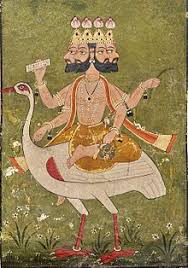

 -----
----- 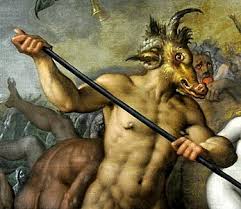
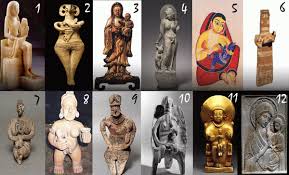
B.C.The Prophets
|
A.D.GodJesus The Church Israel The Nations |
![]()
Lambert Dolphin

Email is welcome
Lambert Dolphin's Place
Newsletters Old and New
Library Annex (900+ new articles since 2018)
Help Thyself. No Charge
